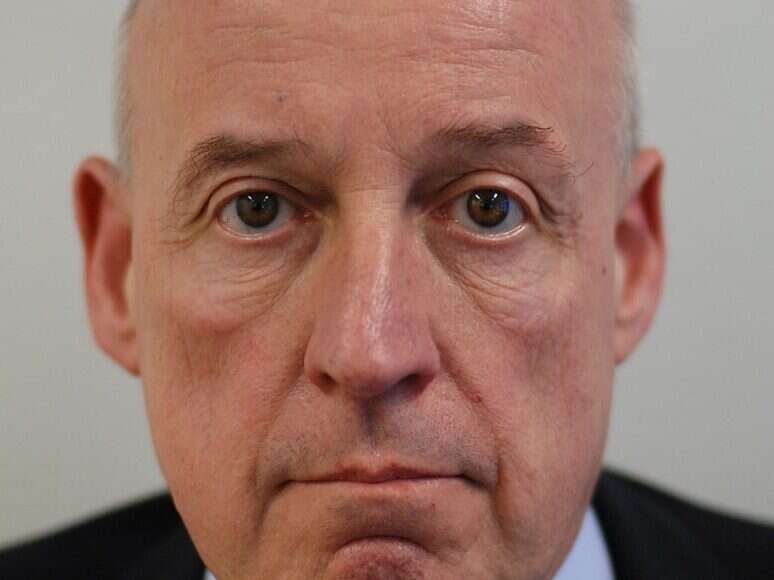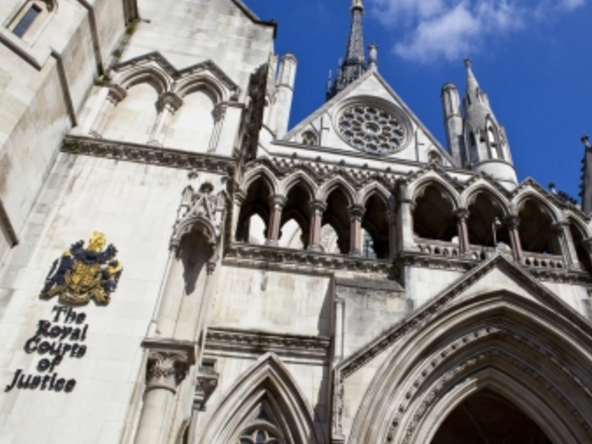
Veteran PA legal editor Mike Dodd has shared a rallying cry for journalists to be “vigilant in defending our rights” after leaving the news agency where he spent 41 years.
Dodd warned that the growing risk from privacy laws to freedom of expression will “go even further” before the public realises it’s gone too far, and said the High Court has become more willing to intervene and grant anonymity.
The 71-year-old, who is known for editing PA’s Media Lawyer service and co-editing five editions of media law bible McNae’s, spoke to Press Gazette after stepping down from PA after 52-years in journalism this week.
Dodd has worked for three titles: the now-defunct Surrey Herald, South African paper The World (where he says he learned a lot about subbing and working under pressure amid “very oppressive” press laws), and PA. He has also carried out media law training and advice, and continues to be open to offers for this type of work after taking a short break.
Dodd fulfilled a lifelong dream by studying for his legal qualifications in his 40s while working on the PA subs desk before becoming its well-respected legal editor.
One of the most significant developments in his 20 years as legal editor has been the “the rapid and increasing development in privacy law”, he said.
“The growth of privacy has gone too far,” he said, “and we now have a situation in which the Court of Appeal takes the view that a man who is accused of or suspected of criminal activity or is even being investigated for potential criminal activity is entitled to regard that as being private information that shouldn’t be in the public domain – which is why we’ve got the situation where nobody is prepared to name the MP who is accused of raping a parliamentary worker despite the fact that she thinks he ought to be named.”
The former minister arrested on suspicion of rape last month has not been named, although the complainant has called for a fellow MP to use parliamentary privilege to do so. He is staying away from the House of Commons while he remains on bail.
Dodd referred to a recent Court of Appeal ruling against Bloomberg, which had reported details taken from a leaked confidential letter of a criminal investigation into a businessman.
He agreed with the Society of Editors, which spoke out at the time, that the court made the “wrong conclusion” and “very damaging because who is it who always wants to stop [publication]? It’s rich people, people who have actually got the money to go to court and will demand that they be protected from exactly the same things that the rest of us face all the time”.
Dodd said this posed a threat to freedom of expression in the UK.
“For example, when you get claims that a well-known or a reasonably well-known MP is accused of rape and we’re not allowed to know who he is – that makes me very worried,” he said.
Ultimately, the use of privacy laws to restrict publication in the UK will “go even further before people start thinking ‘hang on a minute, this has gone too far’”, Dodd believes.
“But this is the way things go,” he said. “The pendulum swings to a certain point. The problem is I think it’s going to do a great deal of damage to freedom of expression, not merely in this country but in other places.”

Royal Courts of Justice.
Dodd also raised concerns that the High Court has become more willing to step in and grant anonymity to people, such as young people convicted of serious offences and later allowed to keep their identities private after the age of 18.
“My view is that the law is quite clear,” he said. “Anonymity for juvenile offenders or for any juvenile ends when they’re 18 and that’s the clear scheme of the law.
“The law also now allows that the court hearing the case can give lifelong anonymity to 18 year-olds who are not the defendant under certain circumstances, mostly to protect them from the risk of intimidation. But they specifically exclude defendants from that. The High Court however seems to take the view that it has the power to rewrite the law.”
He added: “We appear to be in a situation the courts are becoming far more willing to take steps which I think 40 or 50 years ago they would have balked at.
“It’s happened since the beginning of privacy law. Everybody’s arguing that they were entitled to anonymity then, they should be entitled to anonymity for life because it’s part of their right to privacy.
“My answer is I don’t think so, you’re convicted in a criminal court [so] that’s a matter of public record.”
These are just some of the reasons Dodd urged journalists to be “vigilant in defending our rights, because what we do doesn’t just concern us.
“When we write stuff and publish it, we don’t do it for the sake of it. We do it because we want the public to be informed, because a well-informed public is a public which is capable of making the right decisions in a democracy.
“What we don’t want is to live in a situation where the Government dictates everything that is published in the press or anti-vaxxers or some scream-y mob on Twitter or something dictates what’s going on. We have been prepared and we must remain prepared and vigilant to defend our rights.”
‘Very proud’ of legal challenges
Dodd shared what he thought were the most important and memorable cases he has been involved in at PA.
One was the challenge against a Cambridge Crown Court judge’s order banning the identification of a man convicted of rape, which PA won at the Court of Appeal.
Another was the case of Jemma Beale, who was convicted after falsely accusing nine men of rape and a judge made an order saying she could not be identified. An attempt by two police officers to stop their addresses being published as they stood trial on misconduct charges was also successfully thwarted.
Dodd said these cases were significant “because they make quite clear that there are limits on the power that Parliament has given to courts, or the power Parliament has placed in a statute for example, to limit what we can report”.
He added that he was “very proud” of his work taking up such cases and praised other reporters at agencies, local newspapers and broadcasters in particular for being willing to do the same.
“Judges have this tendency, and I don’t think they do it as a matter of malice towards the media, but there is always a tendency to stretch reporting restrictions beyond where they should be, I think possibly out of misplaced sympathy for defendants or various other people, and we have to be prepared that the only way you’re going to maintain your rights is by being prepared to stand up and say so.”
Picture: Mike Dodd
Email pged@pressgazette.co.uk to point out mistakes, provide story tips or send in a letter for publication on our "Letters Page" blog
